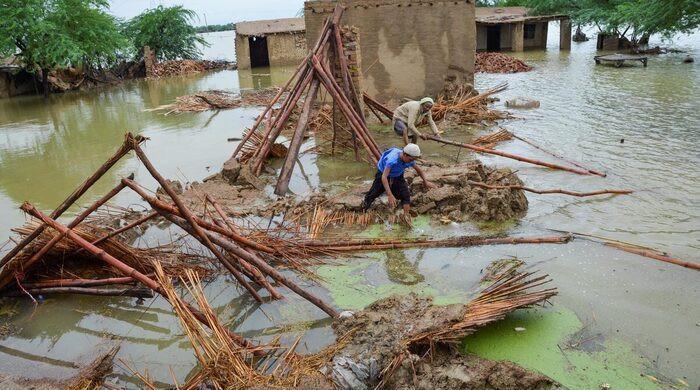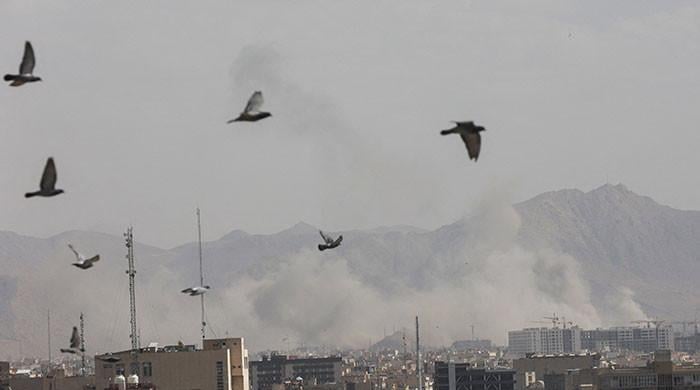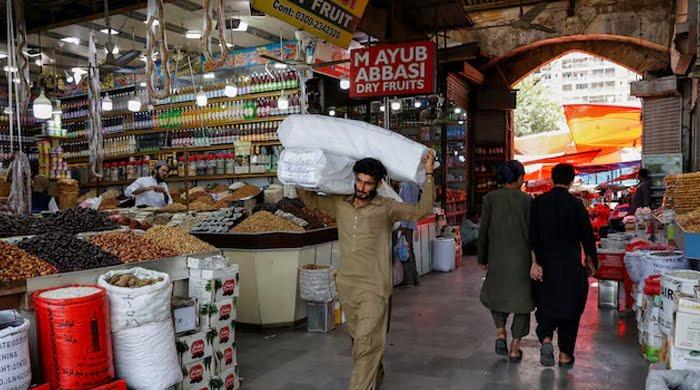Ending enforced disappearances: New law laudable, but weak
The progress made on the bill to criminalise enforced disappearances has been done without any transparency, so far
August 30, 2021

This is the 10th International Day of the Victims of Disappearances since the state began a campaign of enforced disappearances in 2000. Every year on this day, some families of the disappeared gather across the country, holding photos of their missing loved ones, and attempt to ask for their return or at least some answers which the state is obligated to give.
To mark this day, the Baloch who for over a decade have not had a moment to halt their protest camp near the Quetta Press Club, will continue the way they always have. The affected families of Sindhi dissidents will continue to march with the Baloch and Pashtuns of Karachi.
Amina Janjua, one of the world’s most fearless campaigners against enforced disappearances, will likely figure out a way to commemorate the missing persons and stand with the other families, with whom she shares the pain of not knowing the fate of a disappeared beloved.
This day of the disappeared comes after a step has been taken by the incumbent government in the direction towards justice – even if, in the context of this heinous crime, some would consider it too little. After months of speaking about the bill to criminalise enforced disappearances, pledging to ratify the convention against them, the Criminal Laws (Amendment) Act, 2021 – drafted originally by the human rights ministry – was tabled in the National Assembly in June. This development occurred after the human rights minister kept tweeting that her office had done its job and passed it onto the law and justice ministry. The draft bill proposes amendments in the Penal Code and the Code of Criminal Procedure and includes ten years and fine as punishment for illegally forcibly disappearing a person and putting them outside the protection of the law. The draft proposes enforced disappearance be a non-bailable and non-compoundable offence.
Most stakeholders have said that they had not seen any iteration of the draft before it was tabled, few say they saw a very initial one but were not consulted. The point is: a bill about a heinous crime which if committed on a mass scale constitutes a crime against humanity as per international law, and which has ruined the lives of thousands of Pakistanis along with their families and impacted entire communities, has not yet been debated on the floor of parliament or with key stakeholders. The process of drafting and the so-called progress made on this immensely critical legislation has been done without any transparency, so far.
On June 29, 2021, the United Nations’ Mandate of the Working Group of Enforced or Involuntary Disappearances, suggested in a letter to the Pakistan government that the penalties of the said crime “should be further raised to better reflect the severity of the crime”. Quoting the Working Group’s previous findings, they suggested that 25-40 years behind bars, are an appropriate penalty, instead of a mere ten years. The mandate also asked the government to open the draft bill for consultations with civil society and the affected families in an “open and transparent parliamentary process”.
This draft bill, regardless of the shape it is in, at the very least codifies the crime and seeks accountability. Affected groups and rights defenders would be audacious to even dream of seeing a perpetrator be held to account here. The existing Commission of Inquiry on Enforced Disappearances has already failed to investigate or prosecute cases.
The situation is such that very few are asking hard-hitting questions here. The campaigns for the release of missing persons are sanitised, mostly out of fear of reprisals and lack of faith in the powers that be. Besides, disappearances are still a norm here. Over the past few years, dozens of the released disappeared have not spoken about who picked them up or how they were kept, due to fear of recurrence of the crime.
Families of the disappeared are also victims of this crime. Even the draft bill acknowledges that families deserve closure. But it does not include anything about their compensation. Over the years, I have met dozens of grieving family members of the disappeared. The impact on their livelihoods, children’s education, health, the stigma, the burden on the shoulders of women members, with the debilitating uncertainty, exacerbates their grief.
On August 27, the OHCHR issued a statement that families, women and children suffer immensely when the sole breadwinner is picked up. It emphasised that states must address the economic, social and cultural rights of the victims.
Two years back in Islamabad, I met a five-year-old who had started wetting his bed when his IT professional father, of a religious disposition, had been forcibly disappeared from their home in Lahore. His father eventually returned, but meanwhile that family could not afford to pay for the kids’ education or continue renting their house. The child's young mother had never worked in her life. They were a few of the lucky ones. Otherwise, hundreds of families have been picking up the pieces due to years-long disappearances of their loved ones – waiting endlessly for answers.
The writer is an independent researcher and journalist whose work focuses on social justice and human rights.
Email: [email protected]
Twitter: @Rabail26
This article originally appeared in the August 30 edition of The News. It can be accessed here.











